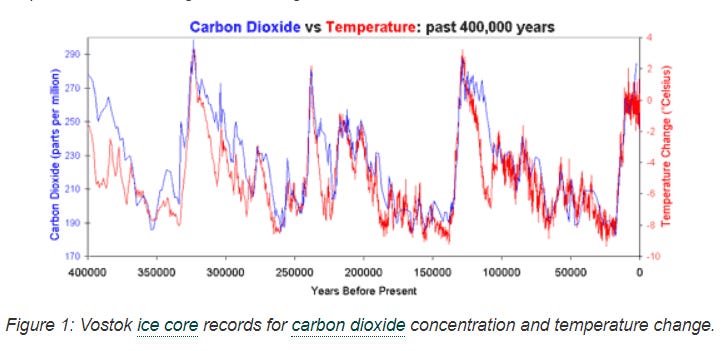The clear and present danger of modelling on public policy
Academics and technocrats are providing one-dimensional solutions
Public policy is the framework upon which government decisions are based upon. Good public policy should result in good governance, while poor public policy can be a disaster for a nation.
We assume public policy comes from the political parties we elect as governments, and their respective administrations. However, the bulk of public policy comes from an unelected, faceless, and largely unaccountable public service, which creates policy papers, which on the whole are rubberstamped by executive government. Most public policy will bypass any cabinet consideration and be approved at ministry level. It will then be operated through administrative law.
The influence of modelling upon public policy
Many government decisions are based upon some form of research undertaken by the public service, or contracted private organizations on their behalf. Within the gamut of research is the sub-discipline of modelling and forecasting.
Modelling is utilized in examining population demographic changes, urban planning, migration, and budgeting. This flows down into plans to build highways, schools, hospitals, and police stations.
When the covid pandemic swept the world in late 2019 and early 2020, computer models were used to extrapolate what was occurring around the world. Sophisticated computer models based upon a number of assumptions were constructed to forecast the effects of Covid-19 upon country populations.
These models didn’t take into account the mutation of Covid-19, the community build up of natural immunity, and the effects of a vaccination program, which didn’t exist at the time. The predictions were many-fold higher than what actually happened.
Public servants proposed to their respective executive governments drastic measures such as closing borders, implementing curfews, restricting people to their homes, as being necessary to stop the spread of Covid-19, to take immediate pressure of public health systems.
However, a recent pre-print paper highlights the vast difference between forecasts and actualities. The new study calculated the fatality rate of those under 69 years old, to be in the vicinity of 0.05 percent, rather than the 0.9 percent fatality rate forecast.
This puts into question the wisdom of lockdowns, and other restrictive measures, given the actualities. The costs of public policy measures upon the economy, SMES, personal health, personal freedoms, and some would say the very institution of democracy, have far outweighed the benefits.
It must be examined how governments could have made such decisions without listening to dissenting and counter opinions. What made things worse was that government just ignored opinions of qualified people outside the bureaucracy, while the mainstream media didn’t give any time or space for these opinions, and social media platforms suppressed them.
The has cost the integrity of public policy makers immensely. The mistakes made from relying solely upon modelling, rather than actualities has been devastating.
Nothing has been done to add checks and balances into the system of public decision making to prevent another catastrophe happening again.
Modelling is drastically changing society over climate change
The effects of modelling are being clearly seen in public climate change policy. Climate change, once referred to as global warming has amplified by pressure groups and the media over the last few decades.
Climate change science is extremely complex, and we are just starting to understand the fundamentals of the phenomenon, still learning as new knowledge is uncovered. We are only starting to make our way among the factors that cause global warming and climate change. Climate change is not just an Earthly experience, and parallels can be seen on other planets. New paradigms in climate change are just opening up and will have great theoretical impact upon the science in coming decades.
Yet, there are many who say the science of climate change is final. We are still novices in physics, astronomy, metrology, and medicine, yet how can climate change science be final?
Once again, the doomsday fervour, alarmism, and fear we saw during the Covid-19 has refocused on climate change. This is all based upon modelling as a replacement for data and evidenced based science. Most of what people call facts are really only assumptions based upon observations, without really appreciating the magnitude of time. A cluster of events over a matter of years, cannot indicate any trends upon an Earth that is 4.5 billion years old.
This figure raises more questions than answers.
To show how unreliable predictions can be, one only has to watch Al Gore’s “An Inconvenient truth”, which itself has become an inconvenient truth. A number of assumptions have been found to be drastically wrong.
The world is talking about carbon emission solutions, when the problem of climate change is much more complex.
Climate change needs to be tackled through multiple solutions to minimize and adapt, as our planetary history indicates to us.
Very few people are coming out publicly with complex solutions to solve the complex issue of climate change. This is primarily out of fear of being ‘cancelled’ by those who dominate the media and narratives.
The current climate change solutions are one-dimensional.
Academics and technocrats are failing our nations, by providing societies with these one-dimensional solutions to complex problems. Vaccines and lockdown for Covid, and renewable energy for climate change.
These are arrogant solutions, as they have the implicit assumption that humans can control nature itself.
If the academics can’t model correctly, then they don’t fully understand the complexity of the problem.
Framing public policy upon models without turning to other human reasoning, taking in other factors, with checks and balances is a recipe for a disaster we are just starting to see.
The major problem facing humanity today is the sorry state of public policy decision making.
Originally published in the Eurasia Review 29th October 2022
Subscribe Below:






Just chanced upon this post below on Facebook by a Frenchman, it's a bit racist but perhaps there's some truth to it. Doesn't mention Malays but well the reader can imagine where to insert but it really puts a whole new perspective on putting the money where the mouth is!
Some interesting observations by this person.
On Twitter by a Frenchman married to Chinese:
great insights, …Indians can sell themselves better than Chinese.
“One of the most profound difference between Chinese and Western culture is the relative unimportance of talk vs action. When you reflect on it, it impacts an awful lot.
In Chinese culture, talk is cheap, vulgar even.
1/
This really surprised me at the beginning with my wife.
She was really uncomfortable, even borderline annoyed when I was telling her that I loved her.
In her mind, you just don't say those things, rather you should act to demonstrate them.
2/
And this is the case in most Chinese family. They never say "I love you". But in exchange the devotion and dedication Chinese parents and grandparents will demonstrate to their offsprings is absolutely unparalleled.
In Chinese culture it's very much about proving your love.
3/
In the West however the spoken word is disproportionately important.
4/
I suspect this explains an awful lot.
For instance it probably has a lot to do with why Chinese people find the US-style selection of president so foreign.
"You mean you select someone based on what they SAY? But they'll say anything to get elected" is basically the view.
5/
To the Chinese, a meritocratic system whereby those who have demonstrated an ability to get things done during years get progressively promoted makes way more sense.
6/
I was reading Obama's auto-hagiography and the guy basically didn't prove anything before becoming president. He was basically just a university teacher and a small time legislator during a handful of years.
Unthinkable in China!
And I am not even speaking about Trump.
7/
This might also partly explain another puzzling fact. Many large companies have many Indians in top managerial roles, even at CEO level: Microsoft, Google, Adobe, etc.
Yet there are very few Chinese. Why? They're at least as good academically as the Indians.
8/
Those familiar with Western corporate world know there are 3 key skills that matter more and more as you climb the ladder: confidence, self-promotion, eloquence.
Those are 3 skills associated with the spoken word. Again something cheap and vulgar in Chinese culture.
9/
That's also why, by the way, foreign executives rarely do well when transferred to a Chinese company.
They were brought into a culture where it was all about selling oneself and suddenly they're expected to shut-up, put their head down and execute. Culture shock!
10/
Anyhow, just my 2-cent, something I was reflecting on during my jog today!
That's also a reason why the world should be more open to understand and learn from China. We'd all benefit from a world with less talk and more deeds!“